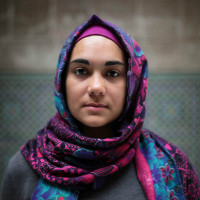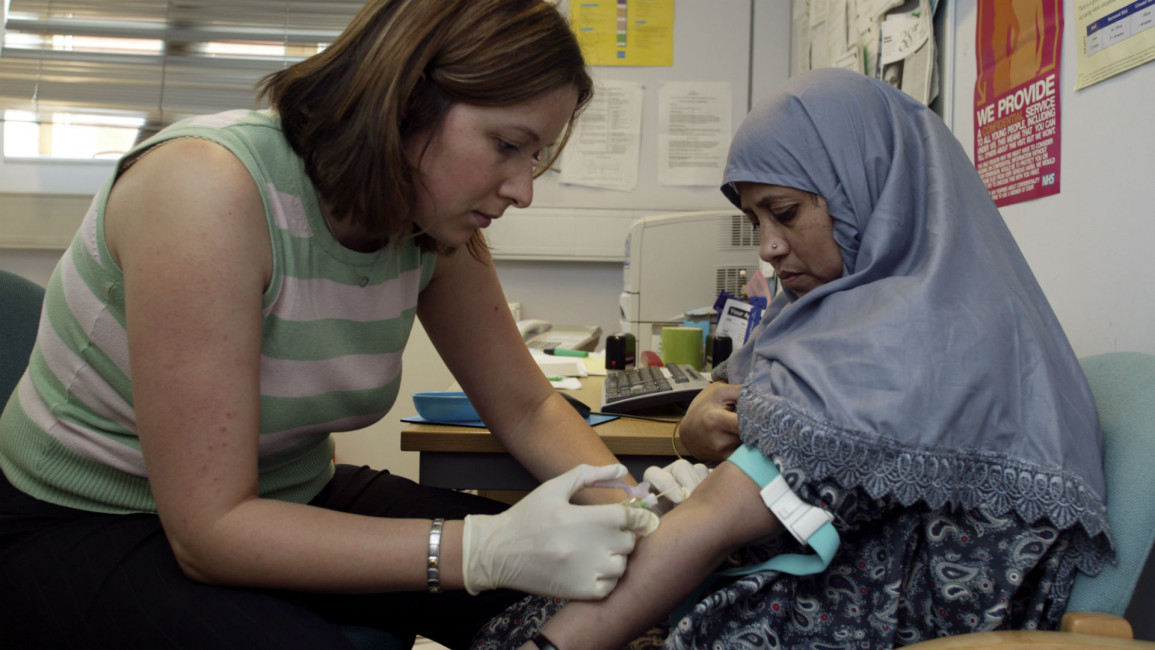
Prevent is the virus, not the vaccine
Prevent was established in 2003 as part of a four-pronged approach to counter terrorism and was widely expanded after the London bombings of 2005. Between 2005 and 2011 over $100 million was spent on around 1,000 different schemes.
The scheme has an already problematic history, and has been accused of stigmatising and alienating Muslims. Notably, in 2010, the strategy was behind the installation of 200 CCTV cameras - 72 of which were hidden - in predominantly Muslim areas of Birmingham.
And in the years since, the Prevent strategy has transformed to encompass not only radicalisation, but also perceived vulnerability to radicalisation.
Since 2011, the Prevent Review has required all NHS bodies to train staff to spot signs of radicalisation and to report them to security agencies. Since 2015, schools have had a legal responsibility to Prevent. Essentially, the scheme is now designed to identify individuals who hold radical views even if they have not committed a crime.
 |
When you visit your dentist for a root canal, she'll be assessing not only your teeth but your views |  |
So when you visit your dentist for a root canal, she'll be assessing not only your teeth but your views. When your child is asked to debate a topic at school, he might get pulled out of class for interrogation if he's Muslim and says the t-word.
And now, when you visit to say your goodbyes to a dying relative, be careful not to say anything that could be interpreted as radical.
Twitter Post
|
Prevent's role in the NHS places an undue burden on both patients and caregivers. The doctor-patient relationship should be one of trust, which prioritises the duty of care, not an opportunity for the government to monitor political beliefs.
The whistleblower who spoke to The Guardian explained that "Patients who don't trust their doctor or nurse may not seek advice from them, which could be potentially life threatening. Prevent moves people's focus away from care, treatment and support into areas that are police business: Counter-terrorism and surveillance."
This has been made possible by reclassifying radicalisation not as the result of a choice, as with other crimes, but as due to pathological vulnerabilities.
With this mindset, it's easy to justify Prevent's actions: Muslims who are considered at risk of becoming terrorists need to be monitored across all sections of society, from young children at school, to the elderly suffering from dementia, to everyday citizens visiting their sick loved ones.
The whistleblower described NHS Prevent training – which they have personally delivered – as requiring staff to monitor and judge the thoughts and actions of a specific group of people and even refer them to the police without their knowledge.
And, despite the rise in far-right terrorism in the UK, they described how Prevent monitors Muslims exclusively. "I have never, ever had a concern raised to me about a white, non-Muslim or far-right person. Concerns have only ever been raised about Muslims."
The stigmatisation of Muslims is prevalent across Prevent.
 |
Terrorism will no longer be limited to radical acts but also radical thoughts |  |
In 2016, the National Union of Teachers voted to scrap Prevent, which obliges teachers to report radicalisation, while providing ineffective training, which one teacher described as "crude and often involves loads of stereotypes." And over the course of just one year, more than 2,000 young children were referred to Prevent.
Twitter Post
|
This week, rights group Liberty accused the government of trying to make "thoughtcrime a reality", following new anti-terrorism proposals. Terrorism will no longer be limited to radical acts but also radical thoughts.
But the UK is already in a state of thought policing - where wearing a "Free Palestine" badge to school, borrowing a book from a school library or being a Marvel superheroes fan will all get you reported to Prevent. Only if you're Muslim, of course.
Indeed, instructions to teaching professionals has described the hiding of a Quran in a bedroom, changing friends and appearance, and (ironically) feeling persecuted as legitimate signs of radicalisation.
In 2016, the US-based Open Society Justice Initiative found Prevent's methods badly flawed, with 17 specific instances highlighted, including children's information being gathered without parental consent, using Prevent to attempt to dismiss a dinner lady and a 17-year old being reported because he had become more religious.
Both in the healthcare and education systems, the Prevent duty affects quality of service and undermines trust between student and teacher, patient and caregiver. And these days, being a stereotypical Muslim is enough for you to be suspected.
So when you go to visit your sick aunt in hospital, don't greet her like a Muslim, don't pray for her like a Muslim, and don't be a Muslim.
Ruqaya Izzidien is a British-Iraqi freelance writer specialising in social and cultural affairs. Her work has been published in The New York Times, the Guardian, the BBC and Al Jazeera English, and her upcoming novel is entitled The Watermelon Boys.
Follow her on Twitter: @RuqayaIzzidien
Opinions expressed in this article remain those of the author, and do not necessarily represent those of The New Arab, its editorial board or staff.




